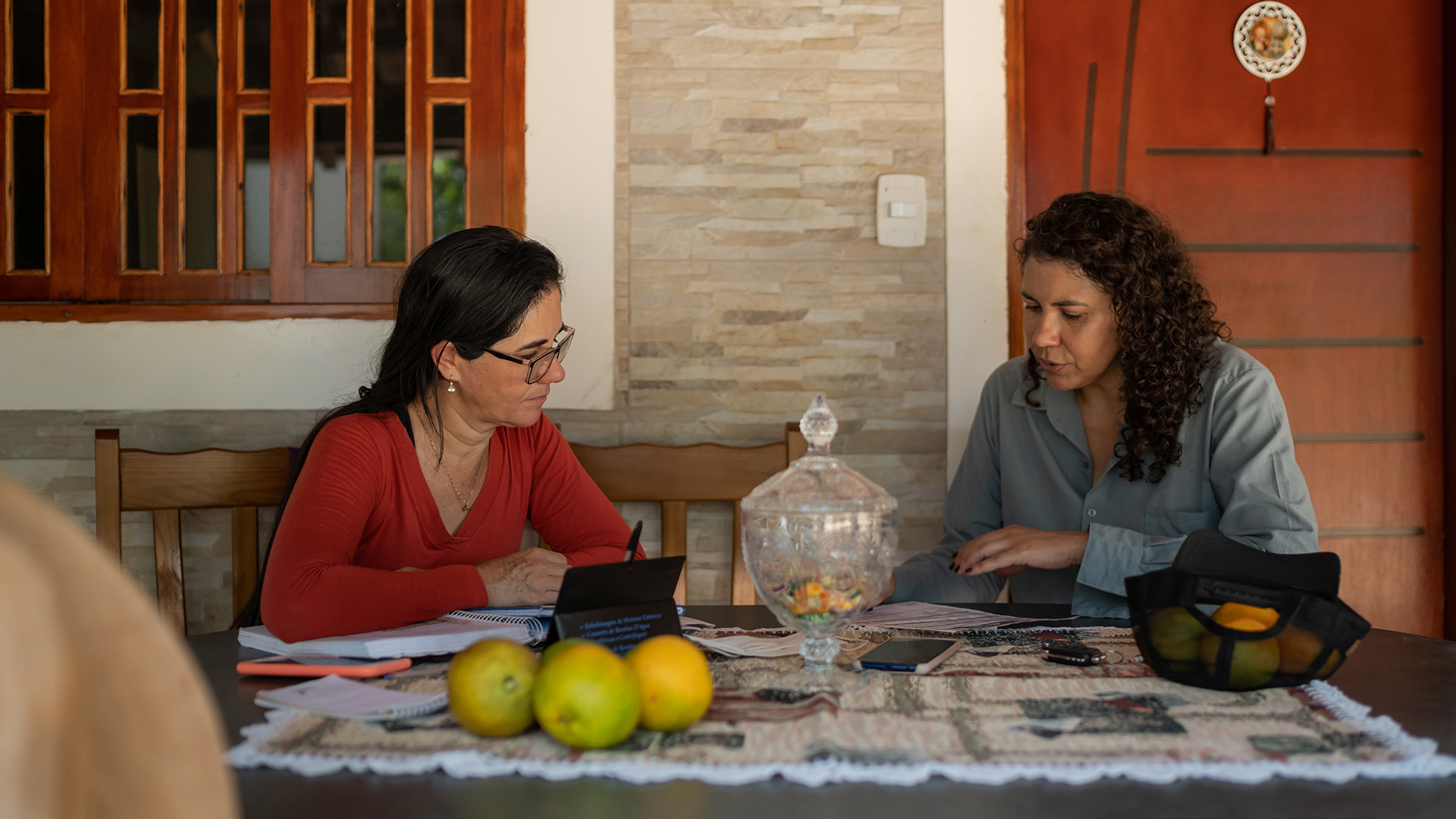When Bernd Neufert recounts meeting Sandra Zanardi on her orange farm in Brazil in June 2022, tears come to his eyes.
Neufert is the procurement manager and the key area lead for sustainable sourcing for the German fruit juice company Eckes-Granini and a family farmer himself. He was in Brazil to learn about a program that helps small growers like Zanardi run sustainable and profitable farms. The program, Fruto Resiliente, or Resilient Fruit, is operated by an international organization called Solidaridad.
Even a decade ago, a small farmer in Germany and one in Brazil would have no reason to know each other. The two came together because Eckes-Granini recognized that small farmers like Zanardi are a critical part of its efforts to create a sustainable supply chain, especially for orange juice, its most popular product. Using advanced data technology, Eckes-Granini has embraced sustainability as part of its business strategy.
When Neufert toured Zanardi’s farm with a group of other fruit buyers, she told her story.
In 2021, Zanardi’s husband died in the COVID-19 epidemic, leaving her alone. While she had lived on the farm for nearly 25 years, her husband ran the business and took care of the trees. She raised their two children and took care of the house.
“I had no knowledge of anything about the farm,” she recalls now, speaking on a video call from her 80 acres in rural São Paulo state. “And I was really unprepared for everything.”

Zanardi explained how Selma Coelho, an extension agent from Solidaridad, came into her life. Coelho had heard that Sandra needed help and began coaching her about how to run the farm. Solidaridad, supported with funding from companies like Eckes-Granini, provides free training from agronomists to small farmers.
“When I met Selma I started to have motivation,” Zanardi says. “I was willing to try.”
Even though Neufert’s home is halfway around the world in Germany, he had empathy for Zanardi’s struggles. He inherited a small farm from his parents in the Harz mountains in Lower-Saxony in north central Germany.
“Her story touched me because I’m a farmer too, and the problems are universal,” he says, speaking in an office at the Eckes-Granini bottling plant near Bonn, Germany. “Keeping it in the family, making ends meet, taking care of the land for the next generation.”
Neufert says that his visit to Zanardi’s farm was among many experiences that have shaped his philosophy about his work. He believes his responsibility goes beyond simply buying the ingredients for juice for European consumers. For him, the idea of a “sustainable supply chain” is about every hand that touches that fruit, from tree to bottle, and about the land on which it grows. And it doesn’t matter if that land is in Germany, Brazil, Peru, Poland or Spain.
“When I think of my job,” Neufert says, “I think it’s as much about making sure small farmers can succeed as it’s about selling juice – though I tell the sales guys we need to sell more juice so we can support these farmers.”
New European laws about corporate responsibility toward the environment and human rights are expected in the coming years. Some European countries, like Germany, have similar laws already.
For Neufert, the laws are secondary, in his view and that of the company, it’s a good business decision to be sustainable, to make sure working conditions are safe and that the environment is respected. This protects the reputation of the brands Eckes-Granini produces and makes customers feel good about the products they buy. Eckes-Granini has set a goal to have 100 percent of its juice sustainably sourced by 2030.
Ensuring that all the companies he works with are using best practices is a complex task that requires diligence, long-term relationships and technology, Neufert says.
He must keep track of hundreds of vendors and suppliers: Do they comply with labor laws? Environmental regulations? Food safety?
This is a complex task for a company like Eckes-Granini, Europe’s largest producer of branded fruit juice. The company, which is family owned, buys all its conventional orange juice from Brazil, which is the world’s largest orange grower. Three out of every five glasses of orange juice consumed in the world come from Brazilian orchards, according to the Brazilian Association of Citrus Exporters.
"juice" - Google News
April 19, 2023 at 08:56PM
https://ift.tt/XJ8b5VH
From orange farmer in Brazil to juice maker in Germany, making sustainability a winning game - Microsoft
"juice" - Google News
https://ift.tt/TGwql8k
https://ift.tt/H2ORjxA
Bagikan Berita Ini














0 Response to "From orange farmer in Brazil to juice maker in Germany, making sustainability a winning game - Microsoft"
Post a Comment